The Centre for Asia Minor Studies
The origin of the Centre for Asia Minor Studies can be traced back to Paris, to the Modern Greek Institute of the Sorbonne. It was in this setting that the French philologist and professor of ethnomusicology Hubert Pernot, along with two of his students, the Hellenist Octave Merlier and the musicologist Melpo Logotheti from Xanthi in Thrace, worked together on the creation of a Balkan musical atlas. This project included the phonographic recording of folk songs and oral dialectal narrations with a focus on the Greek-speaking tradition. Thanks to her mentor’s encouragement, Melpo Logotheti dedicated herself to the study of Greek folk music, which became the topic of her dissertation. However, her academic plans were overturned by the Asia Minor Catastrophe of 1922 and the subsequent compulsory population exchange a year later.
The perceptive and highly qualified in the field of ethnomusicology Melpo Logotheti recognised the significance of the musical tradition that the refugees from Asia Minor had brought to Greece and swiftly realised the urgent need to record and preserve it. Thus, she became the head of an initiative with the aim of protecting and bringing to light the historical and intellectual heritage of the Greek Orthodox populations of Asia Minor. Her point of departure was music, but she did not stop there. To place music in context she was determined to preserve whatever could be preserved from the culture of the people of Christian Asia Minor. She was aware that in order for this distinct musical tradition to be understood it must be associated with the folkloric heritage and the entirety of the social life and experiences of the expatriates.
After marrying, in 1925 Octave and Melpo Merlier settled in Athens. Along with her associates, Melpo Merlier undertook the task of collecting and recording the refugees’ testimonies. The systematic research and collection of material in the ensuing years led to the establishment of the Musical Folklore Archives (1930), the precursor of the Centre for Asia Minor Studies. Her husband, Octave Merlier, was her major supporter. Additionally, Eleftherios Venizelos, Chrysanthos, Metropolitan of Trebizond, Penelope Delta and many other intellectuals of the time provided substantial support for this immense endeavour.
The testimonies were compiled based on a series of specialised questionnaires. Information about each settlement was gathered regarding its geographical location and broader environment, religious and social life, Ottoman administration, education, relationships with other religious and ethnic groups, etc. For about forty years, Melpo Merlier and her associates sought refugee witnesses in the refugee settlements, primarily in Attica, but also beyond, in Macedonia, Crete and elsewhere in Greece. They identified 2163 Greek Orthodox settlements in Asia Minor, of which they managed to investigate 1475, based on the testimonies of 5051 refugees. This led to the formation of the Oral Tradition Archive, which consists of approximately 300,000 pages. This monumental collection is not only the largest and oldest record of oral history in Greece, but also it is widely recognized as one of the most significant in Europe.
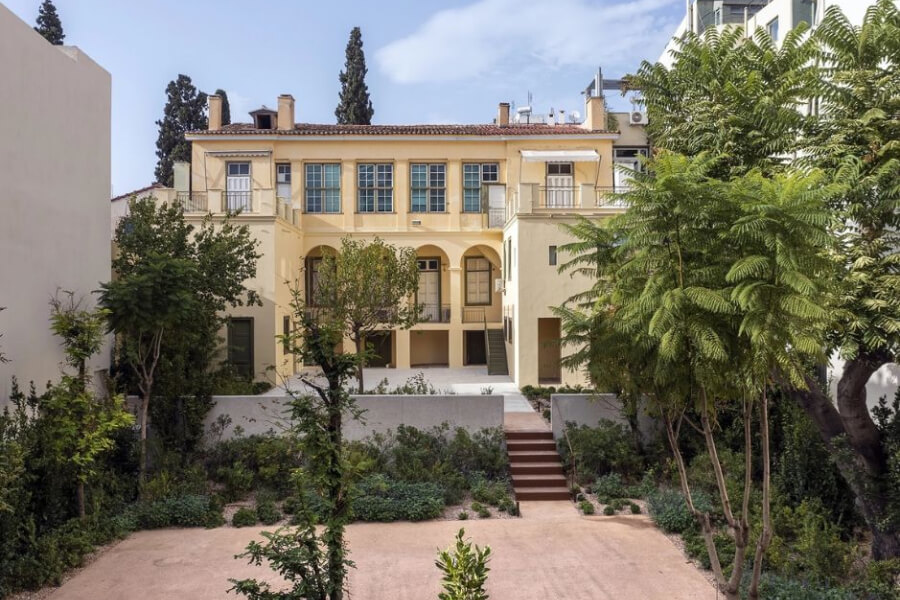
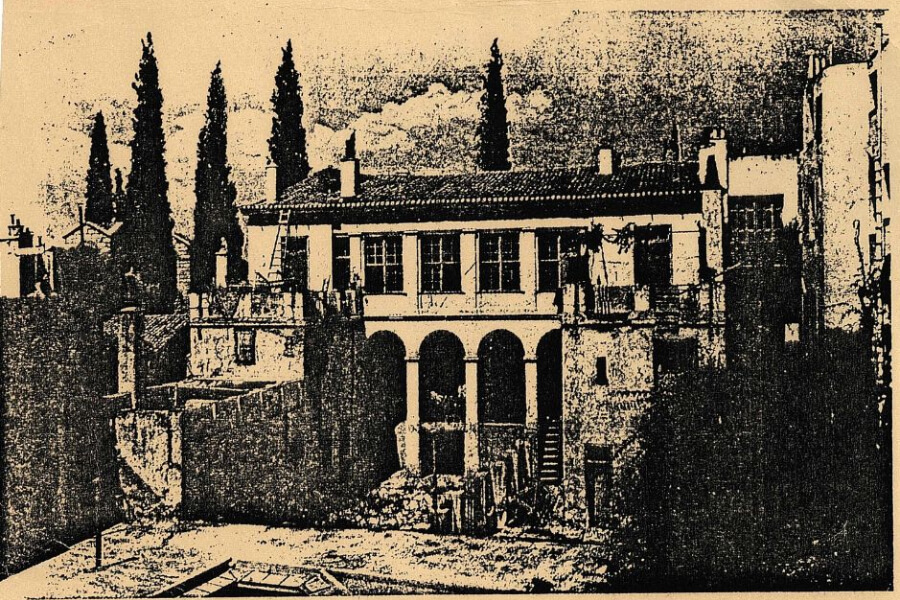
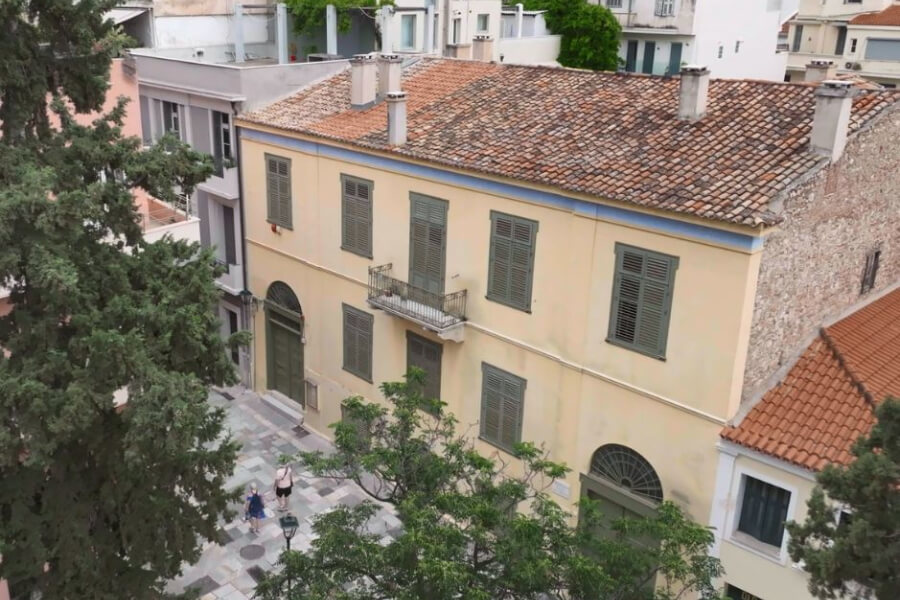
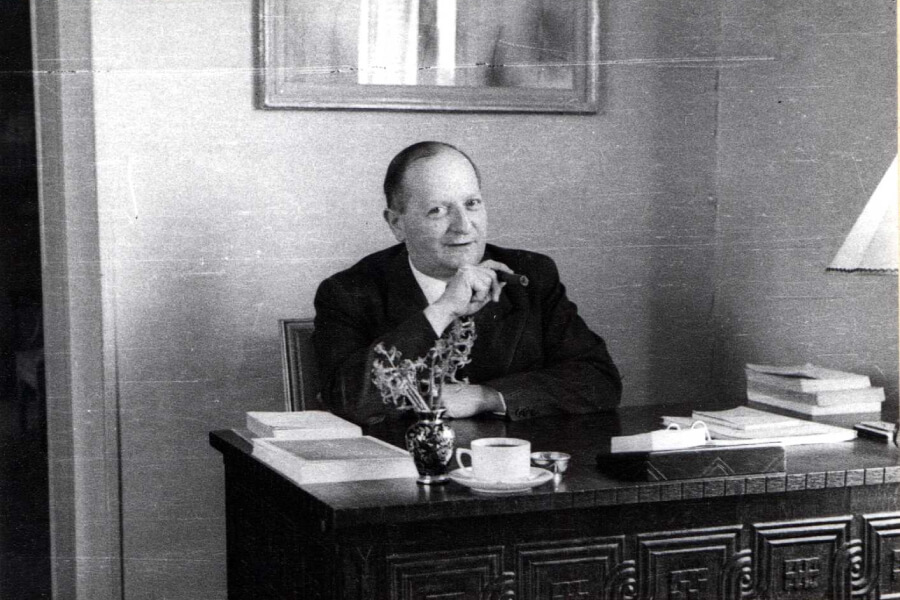
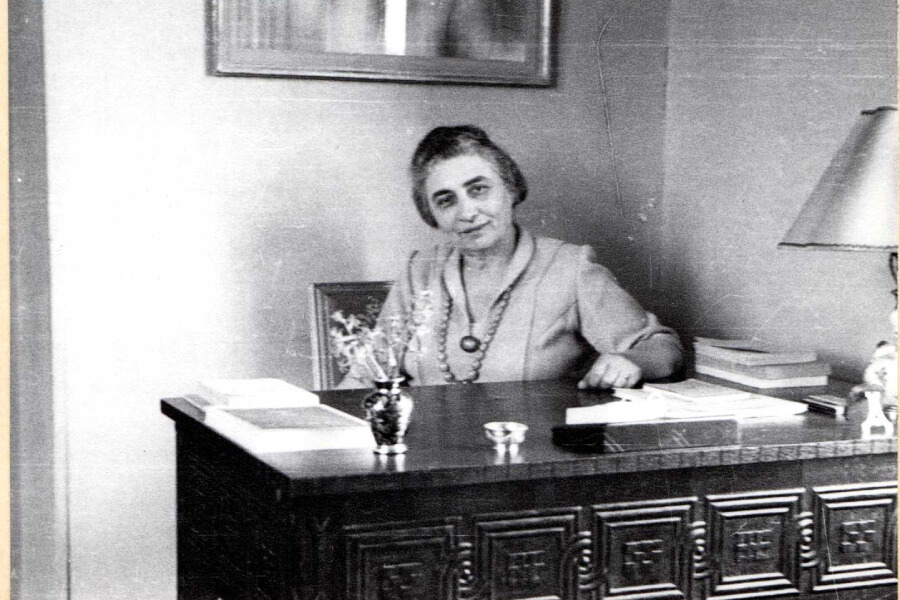
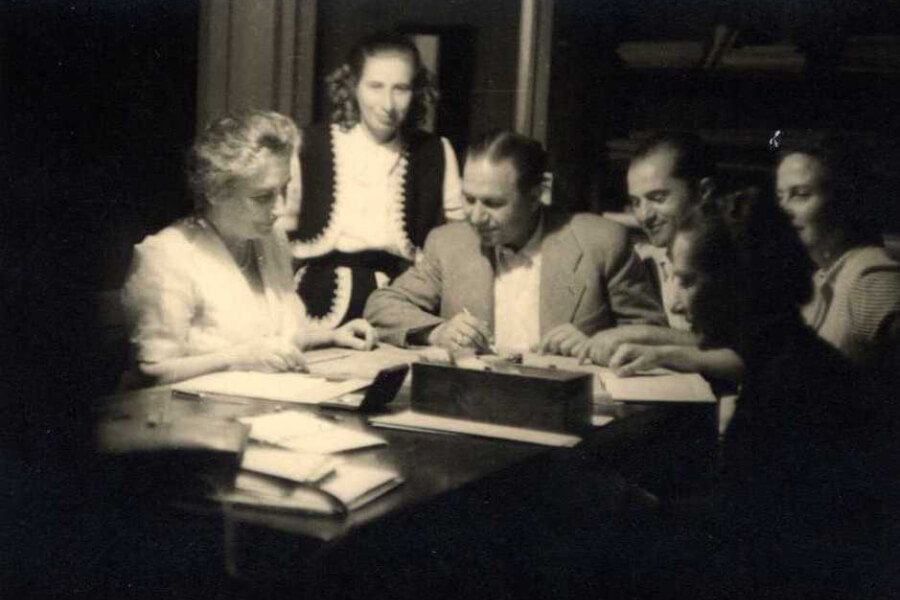
In the post-war period the foundation set new research goals, collected a wide range of primary material and launched significant publishing projects, such as the publication of specialised studies on the Greek idioms spoken at particular villages or locations in Asia Minor. The French Institute in Athens, directed by Octave Merlier, supported the Centre by offering not only a space to house its activities, but also financial assistance. In the 1960s, after obtaining official recognition as independent private legal entity securing an annual grant from the Greek state, its structure was finalised and it acquired a new name: ‘The Centre for Asia Minor Studies – Melpo and Octave Merlier Foundation’.
The unique Oral Tradition Archive is complemented by documentary evidence, rare photographs and community and parish codices, as well as original draft maps from the foundation’s Cartographic Service. At the same time the Library was established, with the initial core of books donated to the Centre by the expatriate intellectuals of Asia Minor. It was gradually enriched with rare editions (collections of Greek publications from Smyrna and Constantinople), as well as with works of contemporary historiography, both Greek and foreign. Of particular importance among the Centre’s special collections is the collection of Karamanlidika texts (publications in the Turkish language in Greek script).
The consistent concern of the founders of the Centre was publications. Thus, the first goal was accomplished in 1977 with the publication of a scientific journal, the Δελτίου Κέντρου Μικρασιατικών Σπουδών [Bulletin of the Centre for Asia Minor Studies], while another significant achievement was the completion of the five-volume work titled Η Έξοδος [The Exodus], which documents refugees’ testimonies during the tragic process of their uprooting.
In October 1980 the Academician Paschalis M. Kitromilides became the Director of the Centre. His extensive theoretical expertise and solid methodological skills expanded the scope of research studies on Asia Minor. He was committed to the vision of making the Centre a ‘research hive, where valid knowledge would be cultivated, new knowledge would be produced and the scientific tradition of studying this significant chapter of Greek history would be passed down from generation to generation’. In the following years priority was given to publishing activities with a consistent focus on quality, reliability and observance of scientific conventions.
Today, nearly 90 years after its establishment, the Centre for Asia Minor Studies actively participates in contemporary research discourse, continuously broadens its field of activity through new collaborations, participates in exhibitions and organises lectures, conferences and seminars. Thus, what was lost from the lengthy Greek presence in Asia Minor is preserved and passed down through science.
Organisation
Board of Directors of the Centre for Asia Minor Studies, 2024-2026
Chairman: George A. David
Vice-chairmen: Evita Arapoglou, Paschalis M. Kitromilides
General Secretary: Eleni Angelomatis-Tsougarakis
Treasurer: Kostas Stamatopoulos
Members of the Board: Stavros Th. Anestidis, Miltiadis Hatzopoulos, Christophoros Haralambakis, Eleni Karkazi Pournara, Loula Errikou Kertsikoff, Athanasios Martinos, Domna Mirasyesi-Bernitsa,
Staff of the Centre for Asia Minor Studies
Director: Professor Paschalis M. Kitromilides
Deputy Director: Stavros Th. Anestidis
Researcher: Dimitris Kamouzis ([email protected])
Head of the Library–Archive: Barbara Psychoula-Kontogianni ([email protected])
Head of the Musical Folklore Archives: Haris Sarris ([email protected])
Communications and Events Manager: Olympia Exarchou ([email protected])
Head of Secretariat and Publications: Maria Mougkaraki ([email protected])
Supporting Staff: Elena Papadopoulou
Donations
The Centre for Asia Minor Studies accepts financial donations from individuals and legal entities, which contribute to strengthening its research work and generally to fulfilling its mission. These donations are the most direct form of support.
Operational Support Donations
The Centre for Asia Minor Studies accepts donations to cover immediate operational costs, as well as donations of technical equipment according to its needs.
Major Donors – Special Grants
- Donation to cover the costs of a scholarly publication (upon consultation with the administrative and research staff of the Centre)
- Donation to cover the salary of a postdoctoral researcher for one year (the position is filled through an open call and subsequent candidate evaluation)
- Grants to finance the organisation of scientific conferences, research seminars, educational programmes and lectures featuring scholars invited from Greece and abroad.
- Donation for the annual maintenance and digitisation needs of the Centre’s Library and Archive.
All Major Donors are acknowledged in the forthcoming volume of the Bulletin of the Centre for Asia Minor Studies, as well as on the Foundation’s website.
For information regarding donations, please contact Olympia Exarchou, Head of Communications: [email protected]
Πρακτική Άσκηση
Το Κέντρο Μικρασιατικών Σπουδών δέχεται φοιτητές και φοιτήτριες για την Πρακτική Άσκηση που απαιτούν οι σπουδές τους. Κατά της διάρκεια της πρακτικής άσκησης έρχονται σε επαφή με την ιστορία και τον πολιτισμό του Μικρασιατικού ελληνισμού.
Οι θέσεις αναρτώνται στο πρόγραμμα “ΑΤΛΑΣ”.
Για περισσότερες πληροφορίες, παρακαλούμε επικοινωνήστε με την Βαρβάρα Κοντογιάννη, Υπεύθυνη Βιβλιοθήκης – Αρχείου: τηλ. 210 3239225 ή στείλτε e-mail: [email protected]

